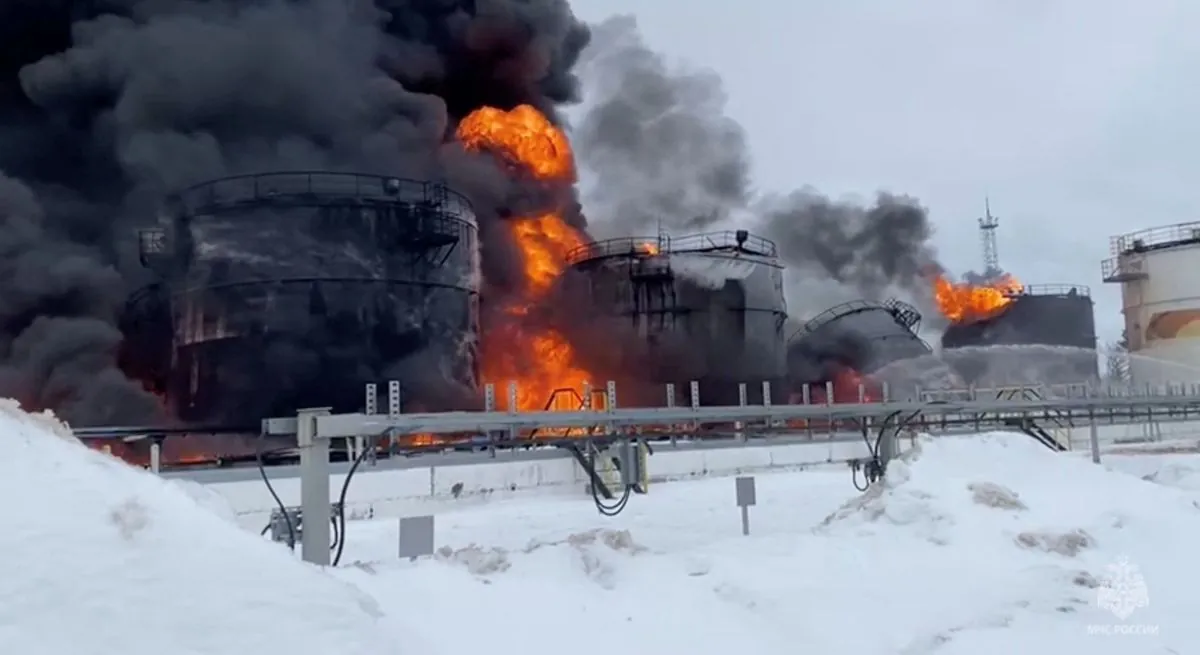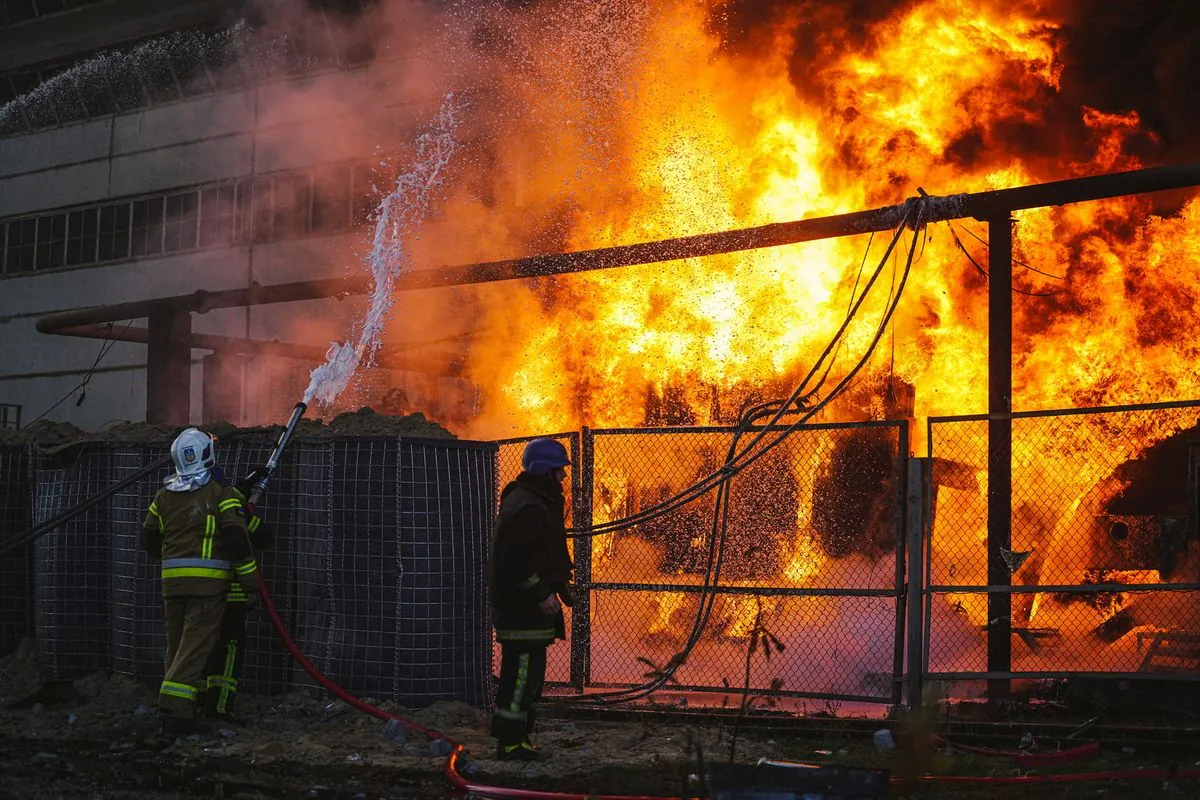Ukraine Strikes Russian Oil Depots as Energy Infrastructure Attacks Escalate
Ukrainian forces hit Russian oil facilities, while Moscow launches major aerial assault on Ukraine. Both sides intensify attacks on energy infrastructure, raising concerns about a harsh winter ahead.

In a significant escalation of the ongoing conflict, Ukrainian forces have conducted strikes on two oil depots within Russian territory. This action was swiftly followed by a major aerial assault from Moscow on Ukraine, marking the third such attack this week. These mutual strikes on energy infrastructure have resulted in widespread electricity outages across Ukraine, raising concerns about the approaching winter.
The attacks occurred just as diplomats and officials believed Kyiv and Moscow were nearing an agreement to halt infrastructure attacks. Instead, both sides have resumed targeting each other's power plants and fuel refineries, potentially impacting international energy markets.
Ukraine's military intelligence directorate, the GUR, reported successful attacks on oil depots in the Russian regions of Kirov and Rostov, located approximately 1,450 kilometers from the Ukrainian-Russian border. An arms depot in the Voronezh region was also targeted. These strikes demonstrate Ukraine's increasing capability to hit targets deep within Russian territory using long-range drones.
In response, Russian forces launched a massive aerial assault on Ukraine, employing 74 one-way attack drones and five missiles. Ukrainian air defenses managed to intercept 60 drones and two missiles, but the remaining projectiles caused significant damage to the country's energy infrastructure.

The impact on Ukraine's power grid has been severe. Ukrenergo, the national power company, announced additional power outages due to the attacks. In Kyiv, electricity usage has been restricted to a few hours per day. Georg Zachmann, a senior fellow at the Helmholtz Center Berlin, warned that the damage to Ukraine's energy system could lead to constant scarcity and regional power cuts during the winter months.
Dmytro Kuleba, Ukraine's Foreign Minister, has been pushing for faster deliveries of promised equipment, particularly air defense systems like the Patriot. He emphasized the urgent need for these systems, stating:
"Since April, when we made a plea for the delivery of more Patriot systems, good progress has been made and announcements were made ... but again, some Patriot systems were announced and not delivered yet."
The escalating attacks have reignited debates about the restrictions on long-range weapons provided to Ukraine by its Western allies. Josep Borrell, the European Union's foreign policy chief, advocated for lifting these restrictions during a recent visit to Brussels. Some NATO countries have also called for the removal of all arms restrictions, although the United States remains cautious as the largest provider of military aid.
As the conflict intensifies, the international community watches closely, aware that the ongoing energy infrastructure attacks could have far-reaching consequences beyond the immediate region. The situation underscores the urgent need for diplomatic efforts to de-escalate tensions and find a peaceful resolution to the conflict.


































